Can I get into Oxford University? || Oxford Interview
TLDRThe video script details the journey of a student preparing for a mathematics interview at Oxford University. Initially, the student performs poorly on an entrance exam but with the help of Dr. Tom Crawford, they manage to improve their score significantly in just two days. The student then undergoes a mock interview with Dr. Crawford to gauge their readiness. Despite feeling confident about their interview skills, the student struggles with the mathematical problems presented, realizing the interview is purely about their mathematical abilities. Following the mock interview, the student is given a four-step plan to improve their skills, which includes brushing up on math basics, enhancing logical thinking, learning how to overcome challenges when stuck, and quickly absorbing and applying new information. The real interview with two Oxford colleagues is intense and reveals the student's areas for improvement. The video concludes with the student understanding that interview skills, including technical knowledge and logical thinking, can be learned and improved with practice. The episode is sponsored by Morning Brew, a daily newsletter that provides a quick update on business, finance, and tech news.
Takeaways
- 🎓 The protagonist aimed to improve his math score for an Oxford University interview with the help of Dr. Tom Crawford, increasing his score from 37 to 61.
- 📚 A mock interview was conducted to assess the candidate's current level and prepare him for the actual interview at St. Edmond Hall, Oxford.
- 🧐 The interview focused solely on mathematical ability, disregarding traditional interview questions about personal life or hobbies.
- 📉 The candidate initially struggled with the mathematical problems, indicating a need for improvement in his mathematical skills.
- 📈 Dr. Tom Crawford devised a four-step plan to help the candidate improve his mathematical skills, logical thinking, problem-solving, and ability to use new information.
- 📚 The candidate spent the first day brushing up on high school mathematics to regain fluency in the subject.
- 🤔 The second day involved working through challenging problems that required logical reasoning and learning how to deal with being stuck on a problem.
- 👨🏫 The real interviewers, Adele and Oliver, provided insights into the candidate's performance, noting areas of strength and areas that needed improvement.
- 📉 The candidate felt his performance in the real interview was not great, particularly due to feeling under pressure and struggling to keep track of the big picture.
- 📈 Despite the challenges, the candidate's performance improved from the mock interview, demonstrating that skills like logical thinking and problem-solving can be learned and improved with practice.
- 📰 The episode was sponsored by Morning Brew, a daily newsletter summarizing business, finance, and tech news in a concise and engaging manner.
- ⏱️ Morning Brew is designed to be read in just five minutes, providing a quick and informative start to the day.
Q & A
What was the main purpose of the interview in the script?
-The main purpose of the interview was to assess the candidate's mathematical abilities and problem-solving skills as part of the application process for undergraduate mathematics at St Edmond Hall, Oxford University.
Who was Dr. Tom Crawford's role in the story?
-Dr. Tom Crawford was a mentor who helped the interviewee improve their mathematics score from 37 to 61 in two days of studying, and also conducted a mock interview to prepare the interviewee for the actual interview at Oxford University.
What was the topic of the first question asked by Dr. Tom Crawford during the mock interview?
-The first question was about creating a cylindrical tin with the smallest surface area possible, considering two possible shapes: a tall and thin cylinder or a short and fat one.
What was the general strategy used by Dr. Tom Crawford to prepare the interviewee for the actual interview?
-Dr. Tom Crawford's strategy involved a four-step plan that included brushing up on math skills, improving logical thinking, learning how to get unstuck during problem-solving, and absorbing and using new information quickly.
What was the interviewee's initial confidence level about the interview?
-The interviewee had an air of confidence because they felt they were quite good at interviews, particularly job interviews, and believed they would perform well.
How did the interviewee feel after the mock interview with Dr. Tom Crawford?
-The interviewee felt that they had performed pretty well and was optimistic about the outcome, even considering looking for accommodation, which indicated a high level of confidence.
What was the feedback from Dr. Tom Crawford after the mock interview?
-Dr. Tom Crawford felt that the interviewee's performance was distinctly average and that they would need a very strong test score to compensate if that was their interview performance. He rated it as a 'five' on a scale where 'six' or 'seven' might be required.
What was the interviewee's approach to improving their skills before the actual interview?
-The interviewee worked on challenging mathematical problems, focusing on logical thinking, overcoming difficulties when stuck, and quickly absorbing and applying new information under the guidance of Dr. Tom Crawford.
Who were the two interviewers from St Edmond Hall that conducted the actual interview?
-The two interviewers were Adele, who was halfway through a PhD at Oxford and taught first-year classes, and Oliver, a math tutor at Teddy Hall and a professor in the maths department at Oxford.
What is the significance of Oliver's background mentioned in the script?
-Oliver is significant because he and his friend Alex Selby solved the 'Eternity Puzzle' in 1999, winning one million pounds in prize money. Oliver's experience with problem-solving and his role in the admissions interviews add weight to his character in the script.
What was the final assessment of the interviewee's performance in the actual interview?
-The final assessment was that the interviewee's performance was borderline. They showed some good ideas and understanding but struggled with keeping track of the big picture and comprehensively understanding the details.
Outlines
🎓 Preparing for a Mathematics Interview at Oxford
The video begins with the narrator discussing his previous attempt to study mathematics at Oxford and his low entrance exam score. With the help of Dr. Tom Crawford, he improved his score and now faces a mock interview to assess his readiness for the real interview. The mock interview delves into mathematical problems, specifically the optimization of a cylindrical tin's surface area. The narrator feels confident due to his interview experience but soon realizes the academic interview's focus on mathematical proficiency rather than typical interview questions. The session ends with a candid discussion of the narrator's performance and areas for improvement.
📚 A Four-Step Plan to Ace the Math Interview
Dr. Tom Crawford outlines a four-step plan to help the narrator prepare for the interview. The plan includes brushing up on math skills based on the syllabus, improving logical thinking, learning how to get unstuck during problem-solving, and absorbing new information quickly. The narrator spends the first day revisiting high school mathematics and the second day working on challenging problems to enhance his logical thinking and problem-solving skills. Despite the grueling process, the narrator acknowledges the necessity of practicing under pressure to improve.
🧩 The Eternity Puzzle and the Real Interview
The narrator meets the real interviewers, Adele and Oliver, the latter being known for solving the Eternity Puzzle. The real interview begins with complex math problems, and the narrator struggles under the pressure, requiring guidance from the interviewers. Despite his nervousness, he manages to work through the problems, though he feels he could have performed better. The interviewers provide feedback, noting the narrator's rusty performance but also his ability to generate ideas. They conclude that his performance was borderline, indicating a need for further improvement.
📰 Sponsored Content: Morning Brew Newsletter
The video concludes with a sponsorship message for Morning Brew, a daily newsletter that offers a quick overview of business, finance, and tech news. The narrator praises Morning Brew for its concise, witty writing style and its ability to inform readers efficiently. He encourages viewers to subscribe to the free newsletter for a more productive and informed start to their day and provides a link for subscription.
Mindmap
Keywords
💡Mock Interview
💡Mathematics
💡Surface Area
💡Logical Thinking
💡Getting Unstuck
💡Admissions Test
💡High School Mathematics
💡PhD
💡Eternity Puzzle
💡Syllabus
💡Morning Brew
Highlights
The episode is sponsored by Morning Brew, a daily newsletter providing business, finance, and tech updates in five minutes.
The host sat an entrance exam at Oxford University for undergraduate mathematics and significantly improved their score with Dr. Tom Crawford's help.
Dr. Tom Crawford and two colleagues will interview the host to assess his potential for acceptance into Oxford.
The host feels confident about the interview due to his interview skills, despite not being an expert in mathematics.
The interview process focuses solely on mathematical ability rather than personal or extracurricular details.
The host and Dr. Tom Crawford work through a problem involving the surface area of a cylindrical tin to minimize it.
The host struggles with the mathematical problems, realizing the interview is not like typical job interviews.
Dr. Tom Crawford provides hints and guidance throughout the mock interview to help the host.
The host is asked a question about the maximum number of pieces a pizza can be cut into based on the number of cuts.
After the mock interview, Dr. Crawford gives feedback, noting the host's lack of recent mathematical practice.
A four-step plan is devised to help the host improve his mathematical skills before the real interview.
The first step of the plan involves brushing up on high school level mathematics.
The host and Dr. Crawford spend an entire day reviewing mathematical concepts to prepare for the interview.
The second day of preparation focuses on logical thinking, overcoming challenges when stuck, and using new information effectively.
The host is pushed to solve challenging problems that test his mathematical skills and comfort zone.
The host experiences mental fatigue from the intensive practice but is encouraged by the progress made.
The real interview begins with a question about a function satisfying a particular equation, testing the host's problem-solving skills.
The host feels the pressure during the real interview and requires assistance from the interviewers to navigate the questions.
Adele and Oliver, the interviewers, provide insights into the host's performance, noting areas of strength and weakness.
The host's performance is described as 'borderline', with a chance of acceptance depending on other factors.
The episode concludes with a reminder that interview skills and mathematical abilities can be improved with practice.
Morning Brew is praised for its concise and informative daily newsletter, providing a quick update on current events in business, finance, and tech.
Transcripts
Browse More Related Video
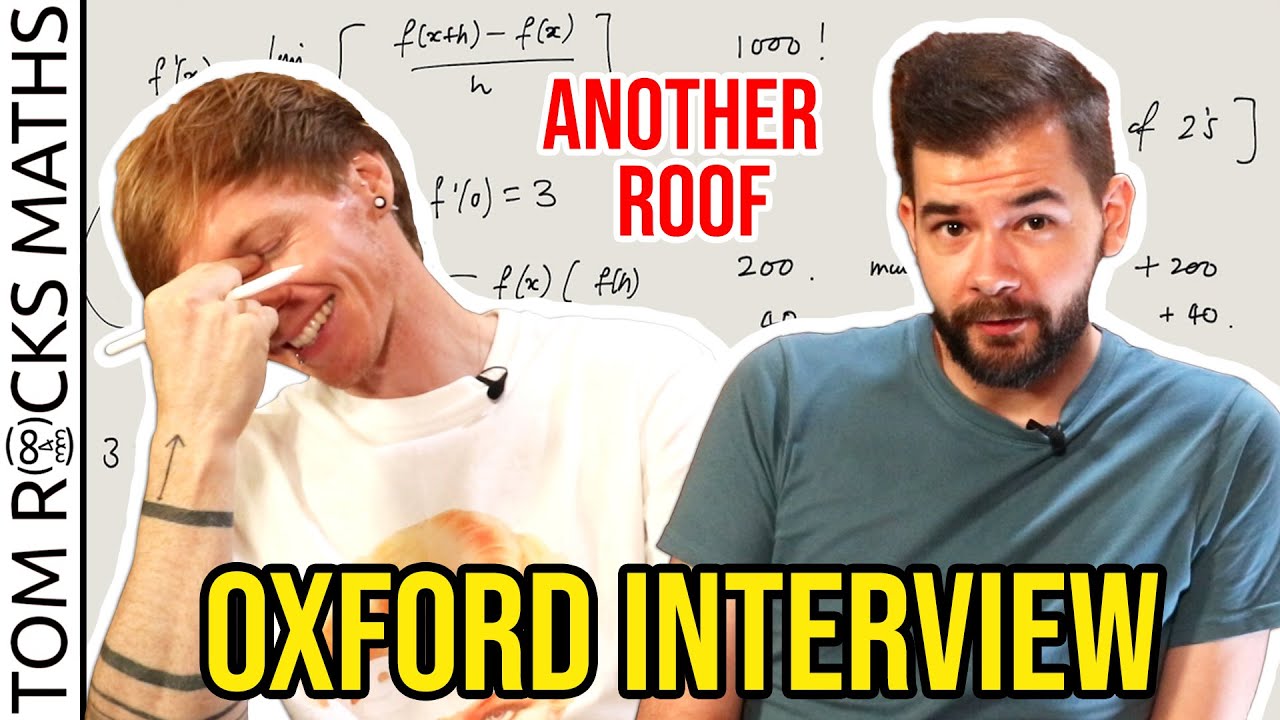
Oxford University Mathematician takes Admissions Interview (with @AnotherRoof)
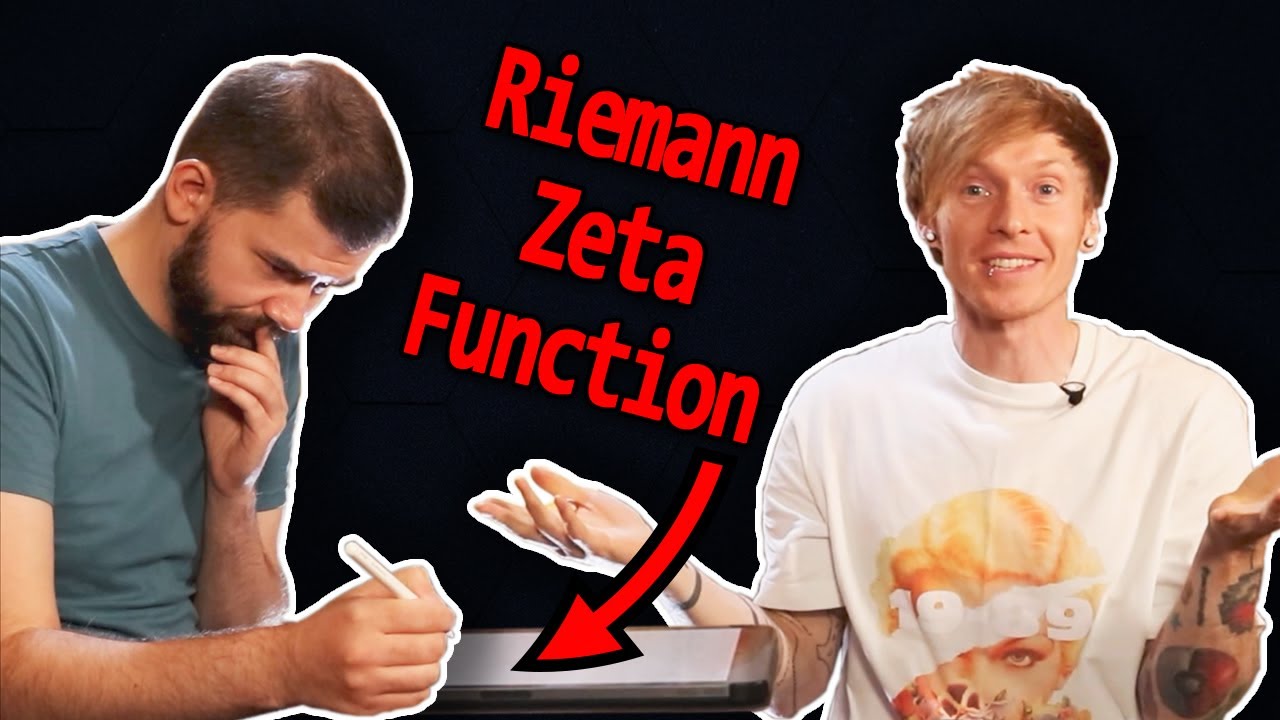
How Hard is an Oxford Maths Interview? Feat. Tom Rocks Maths

How Hard is it to Get Into Oxford University?
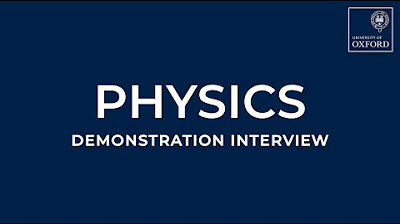
Physics Demonstration Interview
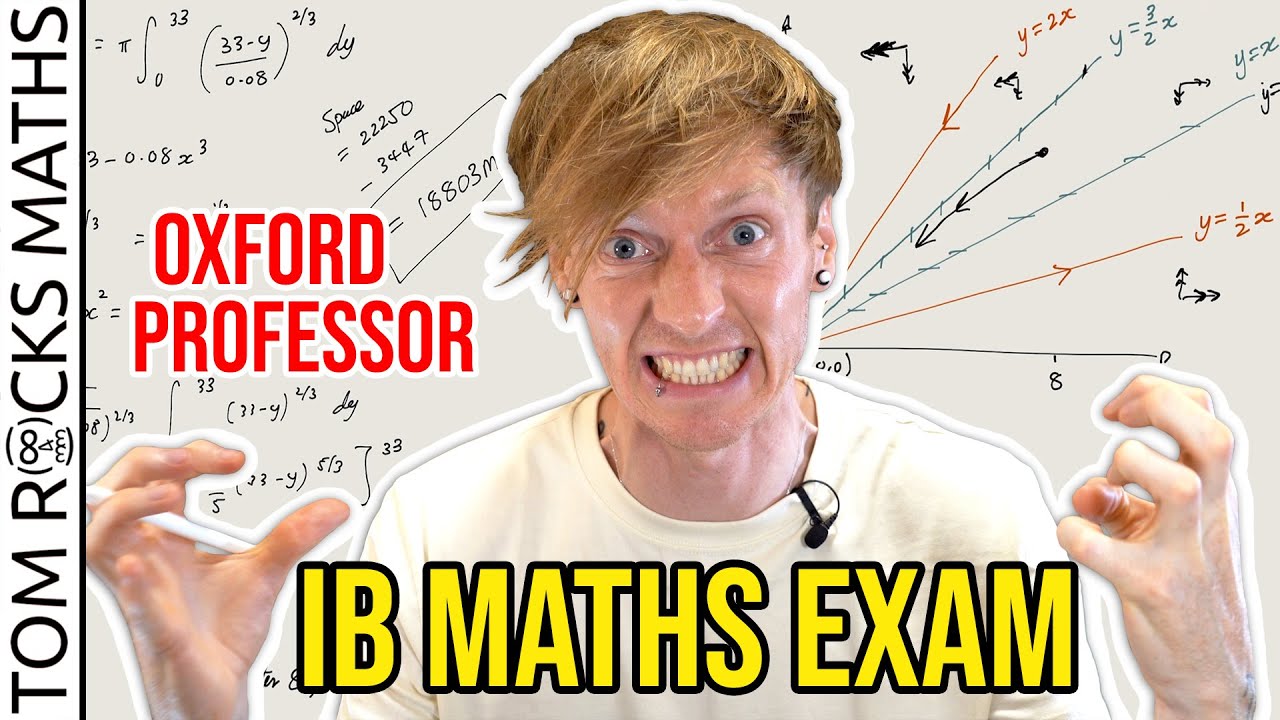
Oxford University Mathematician takes High School IB Maths Exam
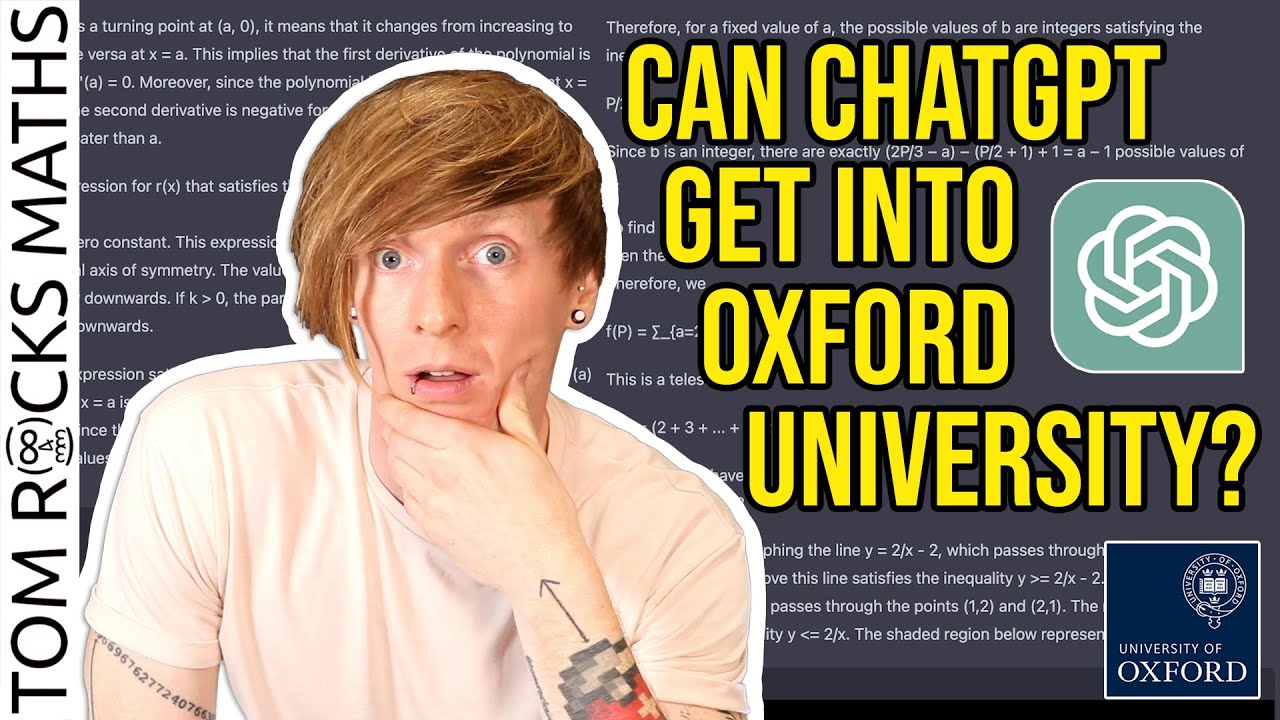
Can ChatGPT Pass the Oxford University Admissions Test?
5.0 / 5 (0 votes)
Thanks for rating: